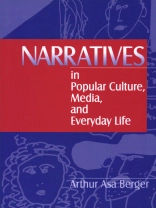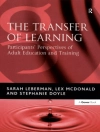Arthur Asa Berger′s newest work, Narratives in Popular Culture, Media, and Everyday Life elucidates narrative theory and applies it to the reader′s everyday experience with popular forms of mass media. Many professionals in the social sciences today have developed great interest in narratives and the insights they can provide about people. This one-of-a-kind book helps to interpret narratives while bringing the analysis down to an accessible level. The first part of the volume defines and examines narrative theorists and narrative techniques–a glossary in chapter four defines key terms and concepts. The second half considers the narrative elements of dreams, fairy tales, comics, television, novels, radio, film, and everyday life. Berger′s conversational style and illuminating application of narrative technique encourage readers to recognize how narratives shape the media as well as one′s own perceptions.
Students and professionals in popular culture, media studies, mass communication, and film studies will enjoy Narratives in Popular Culture, Media, and Everyday Life′ s treatment of popular texts and films, as well as its easy-to-read format.
Inhoudsopgave
The Nature of Narrative
Theorists of Narrativity
Narrative Techniques and Authorial Devices
A Glossary of Terms Relating to Narrative Texts
Dreams
A Freudian Perspective
Fairy Tales
The Comics
The Macintosh ′1984′ Television Commercial
A Study in Television Narrativity
The Popular Culture Novel
Radio Narratives
A Case Study of the
War of the Worlds Script
Film Narratives
Narratives and Everyday Life
Over de auteur
Arthur Asa Berger is Professor Emeritus of Broadcast and Electronic Communication Arts at San Francisco State University, where he taught between 1965 and 2003. He has published more than 100 articles, numerous book reviews, and more than 60 books. Among his latest books are the third edition of Media and Communication Research Methods: An Introduction to Qualitative and Quantitative Approaches (2013), The Academic Writer’s Toolkit: A User’s Manual (2008), What Objects Mean: An Introduction to Material Culture (2009), Bali Tourism (2013), Tourism in Japan: An Ethno-Semiotic Analysis (2010), The Culture Theorist’s Book of Quotations (2010), and The Objects of Our Affection: Semiotics and Consumer Culture (2010). He has also written a number of academic mysteries such as Durkheim is Dead: Sherlock Holmes is Introduced to Sociological Theory (2003) and Mistake in Identity: A Cultural Studies Murder Mystery (2005). His books have been translated into eight languages and thirteen of his books have been translated into Chinese.












